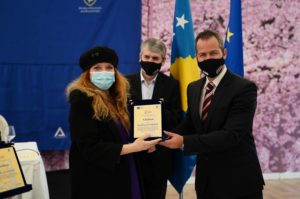
Visibility and Communication for Actions Related to AA/DCFTA Implementation in the Framework of the EU Funded Assistance Programmes
The National Implementation Plan of the EU-Moldova Association Agreement (AA) establishes key priorities to foster political association and economic integration with the EU, including actions assigned to institutions involved in the AA/DCFTA (Deep and Comprehensive Free Trade Area). The DCFTA defines a preferential, mutually advantageous trade relationship between

Support to Development of a Rural Business Information System in Azerbaijan
This project aims to support the development of a Rural Business Information System (RBIS) in Azerbaijan. The project aims to support rural development by increasing public authorities and other agricultural stakeholders’ capacity to collect and provide publicly available, current, and relevant market information and data related to Azerbaijan’s

Enhancing the Employability of Youth and Unemployed/Low-Skilled Workers, and Improving Their Transition to Employment In Egypt
It can be claimed that advancing the structure and performance of the TVET (Technical and Vocational Education and Training) system and TVET deliveries is essential to better respond to new socio-economic needs, in particular, youth employability and increased competitiveness in the context of the country’s current and future

Harmonisation of Kosovo Legislation in the Field of Working Conditions with EU Legislation
Improving the working conditions through the harmonization of legislation in the field of working conditions with EU legislation and increased awareness of relevant stakeholders is vital for employees. Thus, this contract aimed to increase institutional and technical capacity for effectively addressing labour policy issues in Kosovo while providing

EU Support for the Competitiveness of Kosovo’s ICT Sector
This initiative’s overall objective is to enhance the competitiveness of Kosovo’s digital and traditional businesses by supporting the growth of Kosovo’s Information and Communication Technology (ICT) sector, paving the way for growth and new job creation. The project aims to bridge the digital and business skills gap in

Technical Assistance for the Capacity Building for the Ministry of European Integration and Line Ministries for the Preparation of the Negotiation Process and Legal Approximation (SMEI IV)
Albania became an EU candidate country following the European Council’s decision in June 2014. The integration process is underway in line with the priorities set out in the Stabilisation and Association Agreement (SAA) and the EU’s Enlargement Strategy. The purpose of this project is to assist the Albanian

